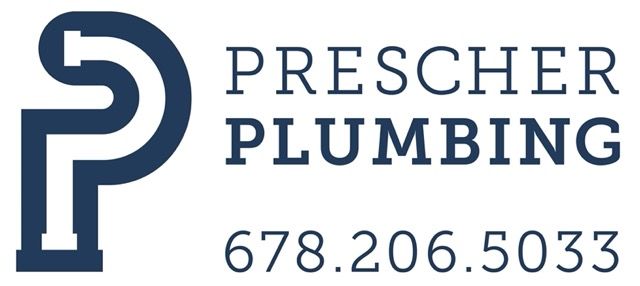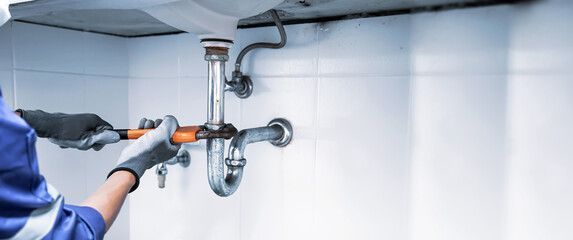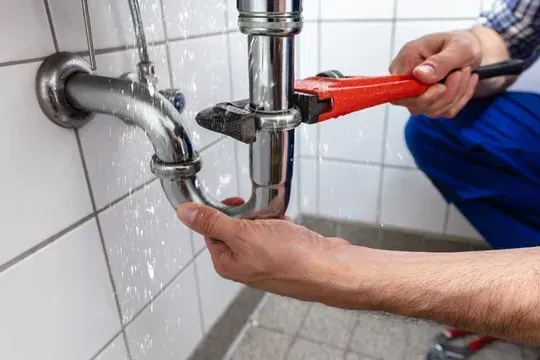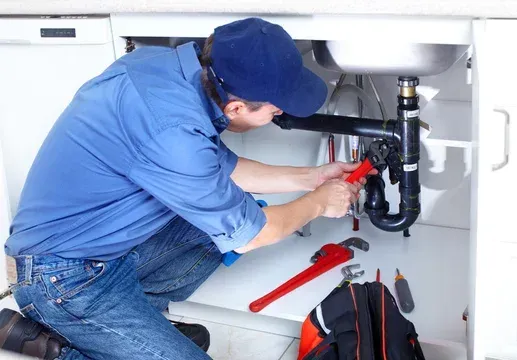Essential Brookhaven Plumbing Tips for Business Owners
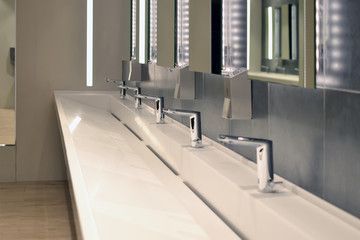
Are you a business owner looking to gain a better understanding of the plumbing systems in your establishment? Brookhaven Plumbing is a crucial aspect of any business, and having basic knowledge of how it works can save you time, money, and prevent potential disruptions. In this blog, we will explore the importance of plumbing systems for businesses, the core concepts of plumbing systems, common plumbing systems found in businesses, essential plumbing supplies, recognizing common plumbing problems, tips for maintaining your plumbing systems, plumbing regulations, and the benefits of seeking professional help. So, let's get started with the basics of plumbing systems.
Understanding Plumbing Basics
Plumbing systems are the backbone of any building, including businesses. They consist of a complex network of pipes, fixtures, and fittings that supply water, carry drainage, and provide sanitation. Understanding the basics of plumbing, including the importance of durable materials like copper, brass, and the Romans' use of lead pipes and aqueducts, is essential for business owners to ensure the smooth operation of their facilities. In addition, modern plumbing systems often utilize stainless steel pipes and fittings for their durability and resistance to corrosion. Let's dive deeper into the importance of plumbing systems for businesses. Read about Transforming Brookhaven Plumbing with Excellence and Reliability to learn more.
Importance Of Plumbing For Businesses
Reliable plumbing systems are vital for the daily operations of businesses. A well-maintained plumbing system ensures a proper water supply, sanitation, and waste disposal. Without a functioning plumbing system, businesses would face numerous challenges, such as water shortages, sanitation issues, and potential health hazards. As a business owner, it is your responsibility to prioritize the upkeep of your plumbing systems to avoid disruptions in your operations and create a safe and healthy environment for your employees and customers.
Businesses heavily rely on plumbing systems for various facilities, including restrooms, kitchens, and laundry rooms. Properly functioning plumbing systems enable employees to carry out their tasks efficiently, maintain cleanliness, and ensure customer satisfaction. Neglecting plumbing maintenance can result in costly repairs, water damage, and even the temporary closure of your business. It is, therefore, crucial for business owners to understand the core concepts of plumbing systems.
Common Plumbing Systems In Businesses
Now that you have a basic understanding of plumbing systems let's explore the common plumbing systems found in businesses. These systems play a crucial role in maintaining the smooth operation of your establishment, so it's essential to have a grasp of their key components and functions.
Drainage Systems
Drainage systems are an integral part of any plumbing system in businesses. They are responsible for preventing water accumulation, disposing of waste, and ensuring the overall cleanliness of the premises. A well-designed drainage system, also known as the DWV system, consists of sewer lines, which carry wastewater away from sinks, toilets, and other fixtures, ultimately leading to a sewage treatment plant or septic tank. The vent component of the DWV system is also crucial, as it allows for proper airflow and prevents pressure build-up in the pipes. It is important to regularly examine and maintain all components of the DWV system, including those in the basement or crawl space, to ensure the proper functioning of the basin and other fixtures. Additionally, the development of separate, underground water and sewage systems, which eliminated open sewage ditches, has greatly improved public health and hygiene in businesses.
Regular maintenance of drainage systems is crucial to prevent backups, clogs, and potential damage. Clogs in the drainage system can cause water to stagnate, leading to foul odors, unsanitary conditions, and even health hazards. By ensuring the proper functioning of your drainage system, you can avoid disruptions in your business operations and maintain a clean and inviting environment for your employees and customers.
Supply And Drainage Subsystems
Supply and drainage subsystems are other essential components of plumbing systems in businesses. The supply subsystem ensures the availability of potable water for various purposes, such as drinking, cleaning, and cooking. It consists of water lines that deliver hot and cold water to sinks, faucets, showers, and other fixtures throughout the building, including the essential fixtures of washing machines and kitchen sinks. Other important fixtures in this subsystem include fountains for drinking water and eye wash stations for safety purposes. The drainage subsystem, on the other hand, is responsible for removing wastewater and sewage from the building. This subsystem utilizes gravity and friction to move the waste through pipes and into the municipal sewer system. Proper maintenance of both the supply and drainage subsystems is crucial to ensuring a functional and efficient plumbing system for businesses.
Efficient supply and drainage subsystems are vital for the seamless operation of businesses. They allow for the uninterrupted flow of water and the removal of waste, enabling employees to carry out their tasks efficiently. Regular inspection and maintenance of these systems are key to identifying and addressing any issues before they escalate into major problems.
Recognizing Common Plumbing Problems
Pinpointing common plumbing issues is crucial for businesses. Leaks, low water pressure, and clogged drains are prevalent problems. Identification of issues like running toilets or dripping faucets can prevent water wastage. Understanding signs of corrosion and rust in pipes aids in early detection. Identifying slow drainage can indicate blockages. Recognizing these problems promptly can save costs on extensive repairs. Staying vigilant against such issues ensures smooth business operations.
Identifying Common Issues
Early detection of leaky faucets can prevent water wastage and damage, while low water pressure may signal pipe blockages or mineral accumulations. Watch out for puddles near appliances, as they might indicate supply line leaks or drainage issues. Unpleasant odors could be a red flag for sewage line problems, and a perpetually running toilet could point to a faulty flapper or fill valve. Being vigilant about these common plumbing indicators, including issues with hard water, grout or sealant problems, can help in timely maintenance and avoid costly repairs.
Determining When To Call A Professional
When facing persistent issues post-DIY attempts, seeking professional help is crucial. Complex sewer line problems demand the expertise of seasoned plumbers. Unusual odors or sounds from pipes indicate the need for specialized inspection. Discolored water signifies potentially serious underlying problems requiring professional evaluation. Chronic clogs affecting various fixtures warrant a professional assessment, as they may require a high-pressure drain scrubbing to clean the inside of the pipe.
Plumbing Regulations For Businesses
Understanding and adhering to plumbing regulations for businesses is paramount. Compliance with local and national regulations ensures the safety and efficiency of plumbing systems. Businesses must be aware of specific codes and standards that govern plumbing installations and maintenance. Familiarity with these regulations is essential for maintaining a safe working environment and avoiding potential penalties. Staying informed about the latest updates and modifications to plumbing regulations is crucial in upholding compliance and ensuring the longevity of the plumbing infrastructure within commercial settings, with the discretion of individual provinces and territories to adopt or modify the National Building Code of Canada according to their specific needs.
Understanding Local And National Regulations
Regulations cover pipe materials, installation methods, and system design. Water usage and waste disposal restrictions differ per locale. Permits are necessary for compliance with plumbing modifications. National standards govern commercial plumbing safety practices. Breaching regulations may lead to legal consequences and business interruptions.
Compliance And Safety Measures
To maintain safety in business premises, it is crucial to ensure adequate ventilation in confined areas to prevent health hazards from gas accumulation. Regular testing of emergency shut-off valves is essential to be prepared for any crisis that may arise. Installing temperature controls on water heaters helps prevent accidents like scalding. Labeling pipes and valves clearly adds to safety by providing easy identification. Training employees on emergency response procedures is key to ensuring quick and effective actions in case of any plumbing emergencies.
Seeking Professional Help
Professional plumbing experts offer efficient solutions for intricate plumbing problems. For major installations, hiring professionals guarantee regulatory compliance. Emergency services promptly address critical issues. Using specialized tools, experts effectively diagnose and repair systems. Collaborating with plumbers for preventive maintenance can optimize time and costs for businesses.
When Is Hiring A Professional Plumber Necessary?
Immediate professional attention is crucial for severe pipe leaks to prevent structural damage. Installing new plumbing fixtures demands precise expertise to avoid complications. Unusual sewer odors or gurgling noises signify potentially serious issues. Swift, professional intervention is necessary for flooding caused by burst pipes. Complex repairs involving main water lines may require professional handling, including replacing old or damaged pipes.
Conclusion
In conclusion, Prescher Plumbing Service is crucial for business owners to ensure smooth operations. Regular maintenance, recognizing common issues, and complying with regulations are key to preventing costly disruptions. Remember, knowing when to seek professional help is essential to address complex plumbing problems effectively. By staying proactive and informed, you can maintain a functional plumbing system that supports your business needs. If you encounter challenges beyond your expertise, don't hesitate to enlist the services of Prescher Plumbing Service to safeguard your business operations. Contact us today!
Frequently Asked Questions: Prescher Plumbing Service
What are the common mistakes in plumbing?
Common mistakes in plumbing include using the wrong fittings or materials, leading to leaks. Improperly sealed connections can result in gradual leaks. Neglecting minor issues can escalate into costly repairs. Forgetting to shut off water before repairs can cause flooding and damage.
What are some common commercial plumbing problems?
There are a number of common commercial plumbing problems, including:
- Clogged drains: This is a common problem that can be caused by a variety of factors, such as grease buildup, soap scum, and hair.
- Leaking pipes: Leaking pipes can waste water and cause damage to your property.
- Water heater problems: Water heaters can leak, break down, or become less efficient over time.
- Sewer line problems: Sewer line problems can be caused by tree roots, cracks in the pipes, or blockages.
What are the different types of services offered by commercial plumbers?
Commercial plumbing is different from residential plumbing in a number of ways. Commercial plumbing systems are typically much larger and more complex, and they need to be able to handle a higher volume of water usage. Commercial plumbers also need to be familiar with a wider range of codes and regulations.
You might also like
Book a Service Today
We will get back to you as soon as possible
Please try again later
Quick & Reliable
Emergency Plumbers Atlanta: Count on Prescher Plumbing Service for 24/7 urgent plumbing assistance. Our dedicated team ensures top-tier customer service, ensuring a swift response with just one call.
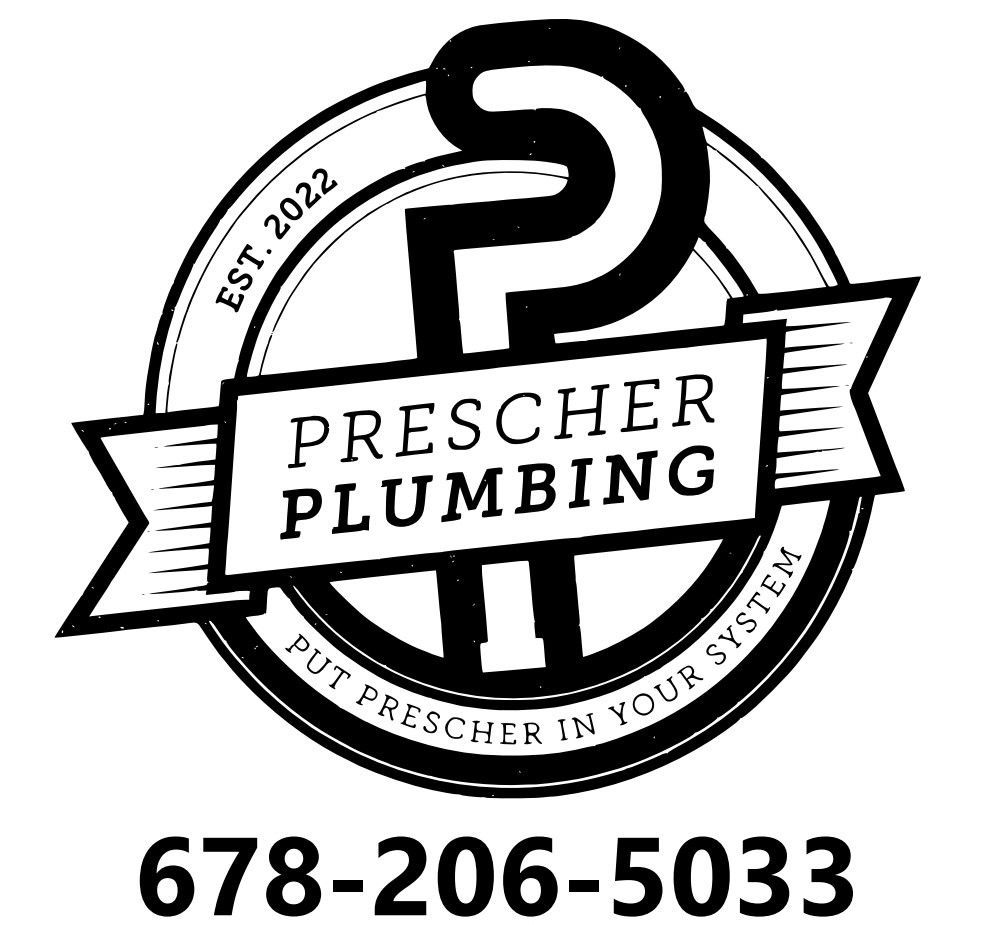
Atlanta and the surrounding areas leading professional plumbing service since 2022.
Navigation
Working Hours
Monday-Friday 8am - 6pm
Edit Google Reviews Widget
All Rights Reserved | Prescher Plumbing Service
